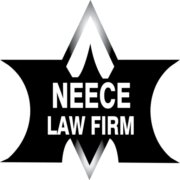Best Real Estate Contracts and Negotiations Lawyers in North Carolina
Share your needs with us, get contacted by law firms.
Free. Takes 2 min.
Free Guide to Hiring a Real Estate Lawyer
Or refine your search by selecting a city:
List of the best lawyers in North Carolina, United States
About Real Estate Contracts and Negotiations Law in North Carolina, United States
Real estate contracts and negotiations involve the legal processes required to buy, sell, lease, or otherwise transfer interests in residential or commercial property. In North Carolina, real estate law governs these transactions and sets forth the requirements for valid contracts, the procedures for negotiation, and the obligations of buyers, sellers, and other parties. North Carolina follows specific rules under state law, which affect how real estate contracts are created, interpreted, and enforced. Understanding these rules is crucial before entering into any agreement related to real estate in the state.
Why You May Need a Lawyer
There are many situations where people find legal guidance essential in real estate contracts and negotiations, including the following:
- Reviewing purchase agreements to ensure all terms are fair, legal, and protect your interests.
- Drafting custom terms into contracts that might not be covered by standard forms.
- Handling complex transactions, such as those involving commercial property, multiple owners, or properties with liens or title issues.
- Understanding the impact of contingencies, such as inspections, repairs, or financing, and negotiating these terms effectively.
- Resolving disputes arising from contract breaches, failure to disclose defects, or disagreements about earnest money deposits.
- Navigating boundary and title issues, especially when survey errors or encroachments are discovered.
- Guiding first-time buyers and sellers through the process, ensuring compliance with North Carolina law.
Local Laws Overview
Real estate transactions in North Carolina are regulated by state statutes, case law, and local ordinances. Some key legal aspects include:
- Offer to Purchase and Contract Standard Forms: North Carolina uses standard forms for residential transactions, most commonly those provided by the North Carolina Association of Realtors and the North Carolina Bar Association.
- Due Diligence Period: In North Carolina, the due diligence period allows buyers to inspect the property, arrange financing, and decide whether to proceed. Buyers can walk away for any reason during this period, but typically forfeit a non-refundable due diligence fee.
- Earnest Money Deposits: Buyers usually provide an earnest money deposit to demonstrate their commitment. The rules regarding when and how these deposits are refunded are detailed in the contract.
- Caveat Emptor: North Carolina follows the principle of "let the buyer beware," but sellers are required to disclose certain types of material defects and complete a Residential Property and Owners’ Association Disclosure Statement.
- Attorney Role in Closings: Real estate closings in North Carolina must be conducted by a licensed North Carolina attorney. Attorneys handle title searches, ensure legal compliance, and record necessary documents.
- Recording System: Deeds and real estate documents must be recorded with the Register of Deeds in the appropriate county for the transfer to be official.
- Specific Performance: North Carolina courts can order parties to carry out the terms of a real estate contract in certain situations, rather than simply awarding monetary damages.
Frequently Asked Questions
What needs to be included in a valid real estate contract in North Carolina?
A valid real estate contract in North Carolina must be in writing, signed by all parties, clearly identify the property, include the purchase price, and specify the terms and conditions of the sale.
Do I need an attorney to buy or sell property in North Carolina?
Yes, North Carolina requires that a licensed attorney oversee real estate closings, including title searches and the recording of deeds.
What is the due diligence period in a real estate contract?
The due diligence period is a set timeframe during which the buyer can inspect the property, secure financing, and decide whether to move forward with the purchase. The buyer may cancel for any reason, but usually forfeits the due diligence fee.
Is earnest money required in every transaction?
While not legally required, earnest money is standard practice. It shows the buyer's serious intent and is often negotiated as part of the contract.
What disclosures must a seller provide?
Most sellers of residential property must complete a Residential Property and Owners’ Association Disclosure Statement, revealing known material defects and certain property conditions, unless the property qualifies for an exemption.
How can contract disputes be resolved?
Contract disputes may be resolved through negotiation, mediation, or litigation. North Carolina courts can order specific performance or award damages, depending on the circumstances.
What happens if the buyer backs out after the due diligence period?
If the buyer backs out after the due diligence period without a valid contract reason, they may forfeit both the due diligence fee and their earnest money deposit.
Are verbal real estate agreements enforceable in North Carolina?
No, North Carolina follows the Statute of Frauds, which requires that real estate contracts be in writing and signed by all parties to be enforceable.
How are repairs handled during negotiations?
Buyers may request repairs during the due diligence period. Sellers can agree, refuse, or negotiate solutions. Any agreed repairs should be clearly detailed in written amendments to the contract.
Can I cancel a real estate contract after signing?
Cancellation rights depend on the terms of the contract. During the due diligence period, buyers may cancel for any reason. After that, cancellation typically results in loss of the earnest money, unless a contract contingency applies.
Additional Resources
For further information and support related to real estate contracts and negotiations in North Carolina, consider these resources:
- North Carolina Real Estate Commission - Oversees licensing and regulation for real estate professionals.
- North Carolina Bar Association - Provides legal resources and attorney referrals.
- North Carolina Association of Realtors - Offers standard forms and educational materials.
- Local county Register of Deeds - Handles document recording and public property records.
- Legal Aid of North Carolina - Offers assistance to eligible residents with real estate and housing issues.
Next Steps
If you are considering a real estate transaction or are in the midst of a contract or negotiation, it is wise to seek legal advice before signing any documents. A licensed North Carolina attorney can review contracts, advise on negotiation strategies, identify potential risks, and represent your interests throughout the process. Start by gathering all relevant paperwork and information about your situation. Then, contact a local real estate attorney or use one of the resources listed above to find qualified legal assistance. Taking these steps can help you protect your rights and ensure a smooth transaction from beginning to end.
Lawzana helps you find the best lawyers and law firms in North Carolina through a curated and pre-screened list of qualified legal professionals. Our platform offers rankings and detailed profiles of attorneys and law firms, allowing you to compare based on practice areas, including Real Estate Contracts and Negotiations, experience, and client feedback.
Each profile includes a description of the firm's areas of practice, client reviews, team members and partners, year of establishment, spoken languages, office locations, contact information, social media presence, and any published articles or resources. Most firms on our platform speak English and are experienced in both local and international legal matters.
Get a quote from top-rated law firms in North Carolina, United States — quickly, securely, and without unnecessary hassle.
Disclaimer:
The information provided on this page is for general informational purposes only and does not constitute legal advice. While we strive to ensure the accuracy and relevance of the content, legal information may change over time, and interpretations of the law can vary. You should always consult with a qualified legal professional for advice specific to your situation.
We disclaim all liability for actions taken or not taken based on the content of this page. If you believe any information is incorrect or outdated, please contact us, and we will review and update it where appropriate.
Browse real estate contracts and negotiations law firms by city in North Carolina
Refine your search by selecting a city.













